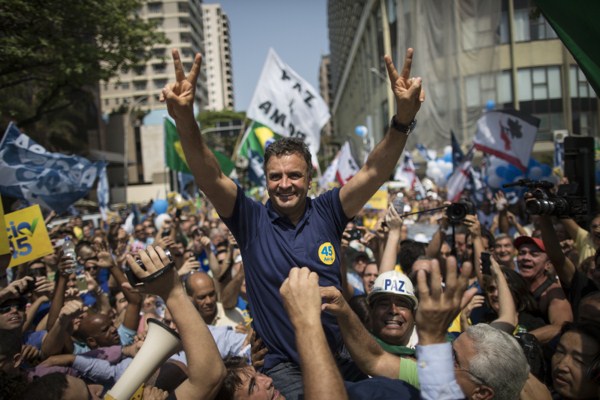A wild Brazilian presidential campaign is nearing an end, its zigzagging story lines returning to where they began: with the incumbent, President Dilma Rousseff, ahead. After the death of Socialist Party candidate Eduardo Campos in a plane crash in August, the emergence of his running mate Marina Silva as the new Socialist candidate briefly upended the race, and had many expecting a runoff between two female candidates—a first-ever in Brazil. But that never happened. Instead, Silva came in a distant third behind Rousseff’s center-right challenger, Aecio Neves of the Brazilian Social Democratic Party, who now trails Rousseff by just a few points before Brazilians go back to the polls Oct. 26.
Bringing the race back to square one is the fact that Brazil's fundamental problems still await the winner. Much of the focus has been on the flat economy: The central bank keeps cutting growth projections for 2014, most recently to 0.7 percent. But even as Rousseff and Neves spar over the welfare state and how best to attract foreign investment, questions over Sao Paolo’s relationship with Washington and ongoing security challenges at home are hardly backseat issues.
Silva’s shake-up of the campaign revived foreign policy debates over the merits of U.S.-Brazilian relations, as Eric Farnsworth wrote in World Politics Review earlier this month. Under Rousseff and her predecessor, Luiz Inacio Lula da Silva, Farnsworth explained, “Brazil has taken a course purposefully independent of the U.S. as a means to achieve long-standing ambitions for a more meaningful stake in global leadership. This has complicated diplomacy between Brasilia and Washington, and was evident long before revelations by NSA contractor Edward Snowden of American spying on Rousseff.”

